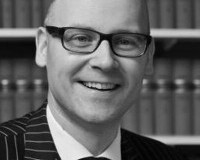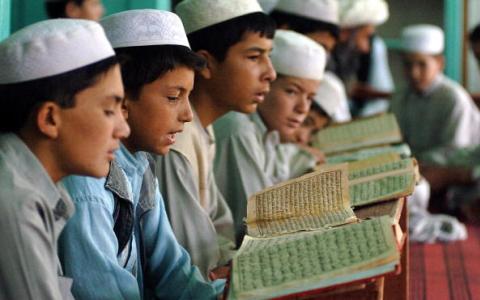‘Ofsted will become state regulator of religion’: Evangelical Alliance
by - 18th May 2016

THE Queen's Speech today sets out sweeping new laws to crack down on extremism as the government ramps up its bid to stop the ‘poisonous narrative’ of radical Islamist ideology.
Records of individuals with convictions for terrorism and connections to extremism will be made available to schools so that so-called 'hate preachers' are prevented from working with children, in much the same way as paedophiles.
But although the Counter-Extremism Bill is designed to stop radicals infiltrating educational institutions and charities in order to exploit vulnerable individuals, it has faced strong opposition from faith and civil liberties groups in, often, unusual coalitions.
Under the banner of campaign Defend Free Speech, the Christian Institute, the National Secular Society and the Peter Tatchell Foundation among others have expressed anxieties that the Government's plans to introduce Extremism Disruption Orders (EDOs) will target activist groups that could include trade unions, environmental campaigners and non-violent figures from the political fringe.
Under the proposals, EDOs will restrict the movement and activities of people the government thinks are engaged in ‘extreme activities’, even if they have not broken the law. They also apply to 'venues and facilitators' that are deemed to help extremists.
Defend
According to press reports, the definition of extremism has been a major stumbling block for the bill's drafters and has been a key issue in the consultation period.
The formula currently advanced by the government is ‘vocal or active opposition to fundamental British values, including democracy, the rule of law, individual liberty and mutual respect and tolerance of different faiths and beliefs’.
 Simon McCrossan of the Evangelical Alliance, which is not part of Defend Free Speech, told Lapido yesterday:
Simon McCrossan of the Evangelical Alliance, which is not part of Defend Free Speech, told Lapido yesterday:
'Extremism has no objective meaning. It is a relative term which derives its meaning from a central reference point.
‘That point appears to be ‘fundamental British values’ which are dangerously open to interpretation. In absence of a written constitution and a codified bill of rights, it appears that “fundamental British values” are almost synonymous with the views of the government of the day.'
Powers
The bill's critics also claim that existing legislation is sufficient to tackle extremism, in particular the public order and counter terrorism acts passed in the last ten years which give the government greater powers to stop hate speech and incentives to criminal activity.
The proposed EDOs are also part of a wider strategy by the government to crack down on the spread of extremist ideology.

Last November, the Department for Education (DfE) published plans to register and inspect out-of-school education settings. These were intended primarily to ensure that Britain's two thousand madrassas or Islamic schools were protecting children's welfare and were not promoting radicalization.
It came after Prime Minister David Cameron spoke about extremist teaching at the Conservative party conference in October. He said : ‘There is nothing wrong with children learning about their faith, whether it's at madrassas, Sunday schools or Jewish yeshivas, but in some madrassas, we've got children being taught that they shouldn't mix with people of other religions; being beaten; swallowing conspiracy theories about Jewish people. These children should be having their minds opened, their horizons broadened, not having their heads filled with poison and their hearts filled with hate.’
In January however, Sir Michael Wilshaw, the head of Ofsted, alarmed MPs by saying the new powers could just as easily be applied to Sunday schools and Jewish yeshivas. It introduced the possibility of Ofsted inspections in churches because it had to treat Sunday schools in the same way as madrassas to ensure ‘even-handedness’.
Sir Michael said in a radio interview : 'We need to know if a Sunday school is being run, is it registered, is it being run properly by people that have been through proper safeguarding checks, and if that is done then we are happy with that and we will only go in when we feel that there is a need to do so.'
For faith groups like the Evangelical Alliance, this raises the possibility of scripture coming under the scrutiny of Ofsted inspectors, the Alliance's Head of Public Policy, Simon McCrossan said:
'Under the current proposals, Ofsted would become the state regulator of religion. Whilst not there to consider the quality of teaching, they reserve the right to identify “undesirable teaching", as defined by the state.
‘The logical extension of this is the creation of forms of unlawful religion. It is quite possible that the holy books of all the major world religions contain passages and precepts that offend elements of the government’s counter-extremism strategy.'
The Department for Education has insisted that the Government is not proposing to regulate institutions teaching children for a short period every week, but this has moved the debate into how the duration of informal teaching is measured.
This aspect of the government's counter-extremism strategy was further brought into focus on Monday this week, with revelations that a number of schools unregulated by Oftsed are operating across the country and consequently have the potential to put children at risk of extremism and radicalization.
In the last five months, Ofsted chief inspector Sir Michael Wilshaw said that inspectors had identified up to a hundred unregistered schools.
